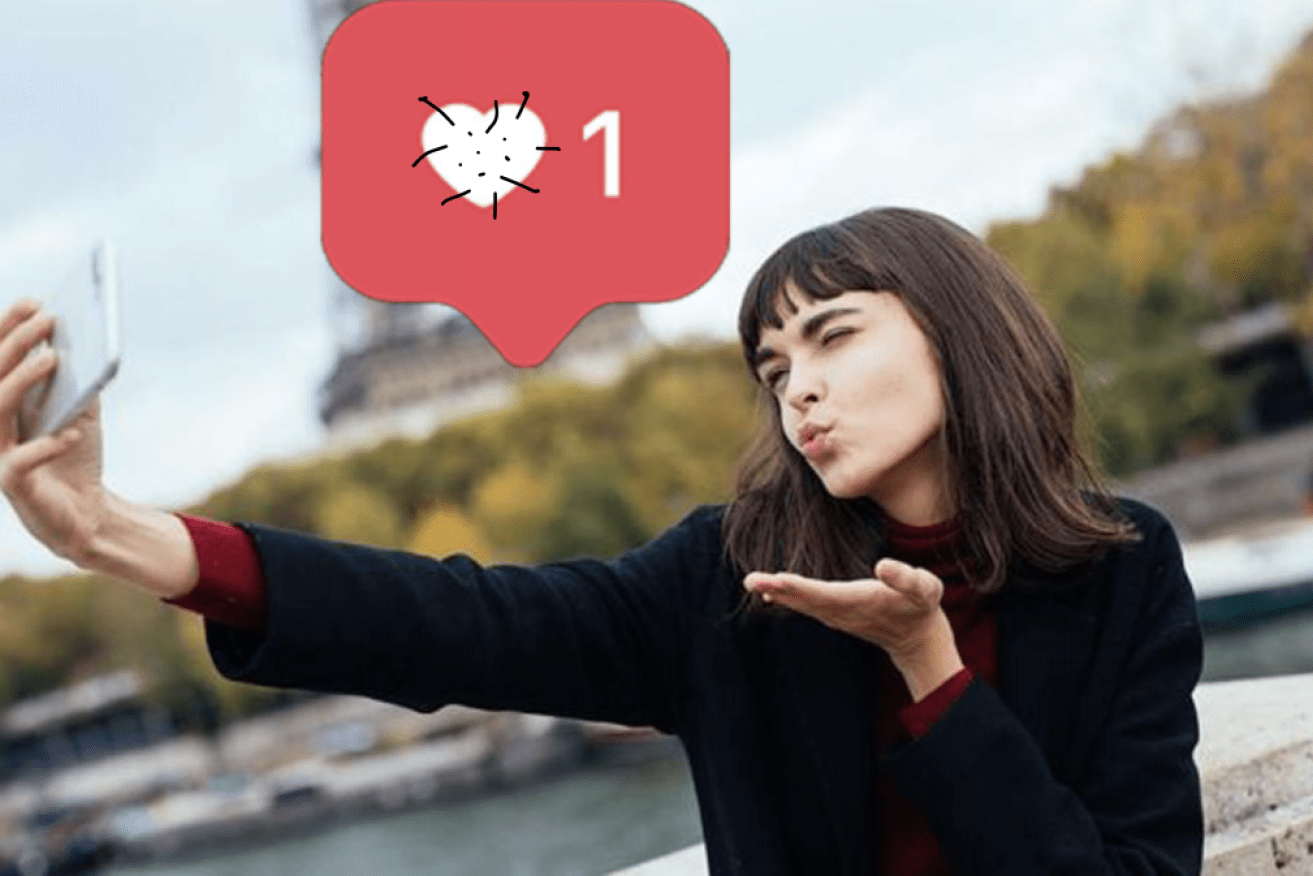How vanity viral marketing ran headlong into coronavirus


Traps for influencers in the COVID-19 age. Photo: ABC/TND
You may have successfully spent most of the past two months trying to avoid the coronavirus, but experts say shaking off viral marketing’s vanity ‘influencers ‘ will be no sure thing even in the post-pandemic world.
Social media marketers have been all the rage in recent years, with a proliferation of beautiful people and instant experts offering beauty, fashion, travel and luxury household tips.
But in a world awash with angst about a killer virus, some hard questions are being asked about whether the flashy friends on our phones will still be with us once the dust settles.
Lee Stephens, chief executive of Australian digital marketing firm Switch Digital, believes the pandemic will be a disruptor that will ultimately boost influencer traffic in much the same way as Fox News established itself in the US media scene through the Iraq war.
“Audiences shifted en masse to the internet, marking the beginning of a slow decline in print media in the western world,” Mr Stephens wrote in trade publication AdNews.
“Now, in our own health and economic crisis, we are seeing traditional media companies and agencies scramble for survival in a COVID-19 world … The current global shutdown is a catalyst for permanent change.”
Mt Stephens said a US survey from Influence Central showed some of the most recognisable names were thriving, with 36 per cent seeing an increase in engagement on Instagram – although he cautioned about the “frighteningly” high audience number of 70 per cent who were looking to influencers for guidance during the pandemic.
And there lies the rub for the mostly young audience engaging with influencers.
How is the public to know if the person you follow really has any expertise, if they are being sincere, or just paid for their views?
Melbourne lifestyle icon Rebecca Judd – who has been in the public spotlight since her 2004 Brownlow Medal date with future husband Chris Judd – attracted yet another tabloid splash this week when posting her support on Instagram for the government’s COVID-19 tracking app.

Influencers: Instagrammers Jennifer Hawkins and Rebecca Judd. Photo: Getty
It did, however, raise the question, had Ms Judd been brought into the Health Department fold, or was it just some sincere advice from a high-profile celebrity?
“The Department of Health does not use social media influencers in its campaign media buys,” a spokesperson told The New Daily on Tuesday.
And that makes sense.
The Queensland University of Technology said its recent research had shown much incorrect health advice had been spread by celebrity or social media posts.
Tweet from @QUTmedia
It’s this style over substance, celebrity over expert, that has made some wary of the influencer culture and its growing place in the media.
Renae Smith, founder and director of The Atticism public relations firm, raised eyebrows in the Australian industry when she decided to walk away from using social media influencers in campaigns.
She’s been watching the influencer debate through the pandemic and believes people need to take care or potentially do real damage.
“It’s important to be wary of offering health advice,” she said.
“We’ve seen a flood of conflicting advice and opinion come out about isolation, physical distancing, vaccination, Bill Gates, 5G, the WHO etc.
You may have opinions, but it’s important to remember to ‘stick to what you know’ and don’t be tempted to share your opinion as facts. That can be dangerous on a much wider scale and is totally different to sharing fashion advice.’’
Ms Smith believes in the current health crisis some ‘vanity’ influencers may also find that their followers start to see them as they are, not as how they wish to project themselves or their brands.
“I would be worried about my ‘followers’ seeing through the act,” Ms Smith cautioned.
“Big brands that use these types of ‘vanity influencers’ rely on people ‘believing the bullsh-t’ and if someone is still posting about all the insane amazing stuff they’re doing – then obviously that’s not realistic.
Tweet from @tiffmoustakas
“In saying that, I’ve been watching what a lot of the influencers are posting, and they’re doing ‘Remember when’ style posts, or ‘Still glam at home’ type things – which doesn’t necessarily go against their ‘image’.
“Whilst I find the whole vanity influencer culture to be toe-curlingly shallow – I think that there would be a way people can continue to do it without looking ridiculous.”
One popular Instagrammer Jessica Pinili appeared not to get the balance right this month, coming under attack from followers and critics after returning from Bali and criticising her hotel quarantine conditions.
The women’s health coach complained about being “worse than a prisoner” because “prisoners get fresh air” – prompting a backlash that saw her garner even more headlines when she accused critics of cyberbullying.
Ms Smith says this is the double-edged sword that influencers face.
“From a general standpoint, I do think it’s important to remember that everyone reacts to change, stress and anxiety differently – so it’s hard to give a ‘standardised’ way that people should behave in order to fit into some ‘correct’ category,” she said.
“If I am going strictly off professional advice, I think the key for any person – influencer, company or otherwise – is to be genuine and on brand.
“If your posts are always about living a flashy life, money and spending – then changing your brand to suddenly start ditching out yoda-eque stress relief advice will probably be met with backlash – as it’s not your brand.
“On the other hand if you’re always a bit philosophical in your posts, sharing something personal or explaining how you’re dealing with your situation won’t be such a harsh change for your followers.”
Tweet from @thicchorsegirl
Ms Smith says her company has no no regrets about ditching influencers for more genuine interactions.
“I felt the tide turning before all of this happened. Not all industries have been moving away from vanity measures as rapidly as others – but there were definitely industries, such as hospitality, that had started seeing through the likes/shares and realising that there was no real influence in a large majority of influencers,” she said.
“We had a huge turndown in profits but last year we really worked at explaining our methodology and showing industry trends away from vanity measures and, as a result, gained more educated clients who shared our way of thinking.”
And while influencers may still find a niche on the other side of the COVID-19 crisis, at least one celebrity – English comedian Ricky Gervais – sees a backlash ahead for high-profile people talking about the pandemic on social media.
“These people are doing 14-hour shifts and not complaining. Wearing masks and being left with sores, after risking their own health and their families’ health selflessly,” he told UK newspaper The Sun.
“But then I see someone complaining about being in a mansion with a swimming pool. And, you know, honestly, I just don’t want to hear it.”








